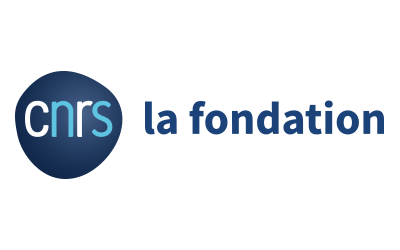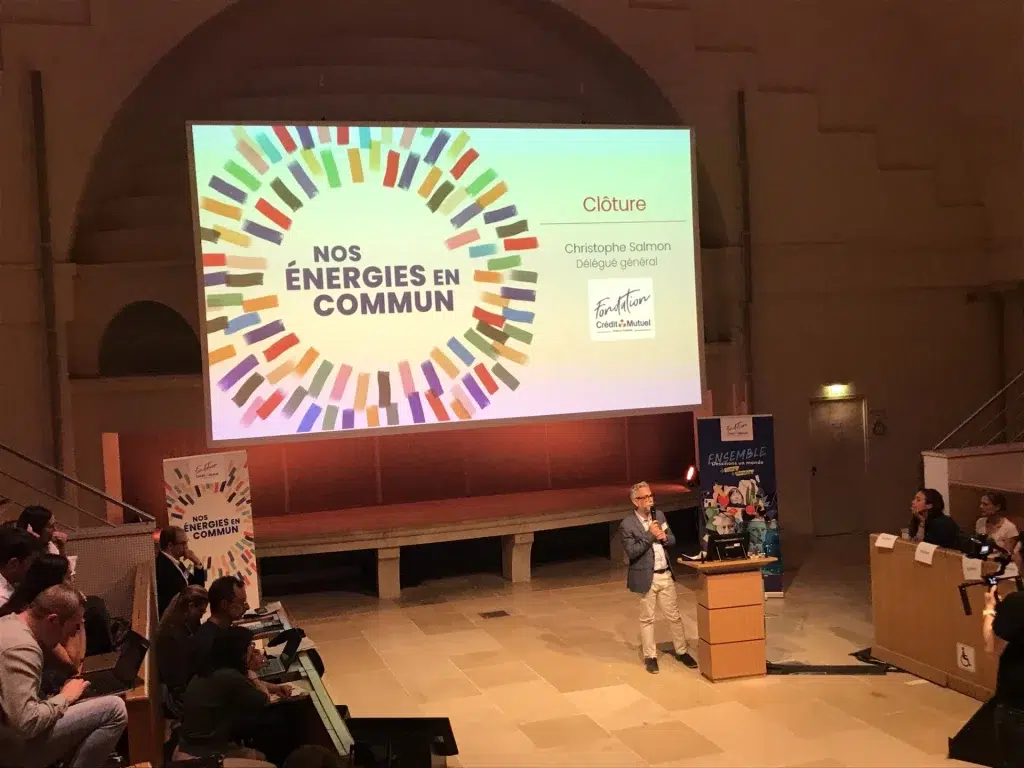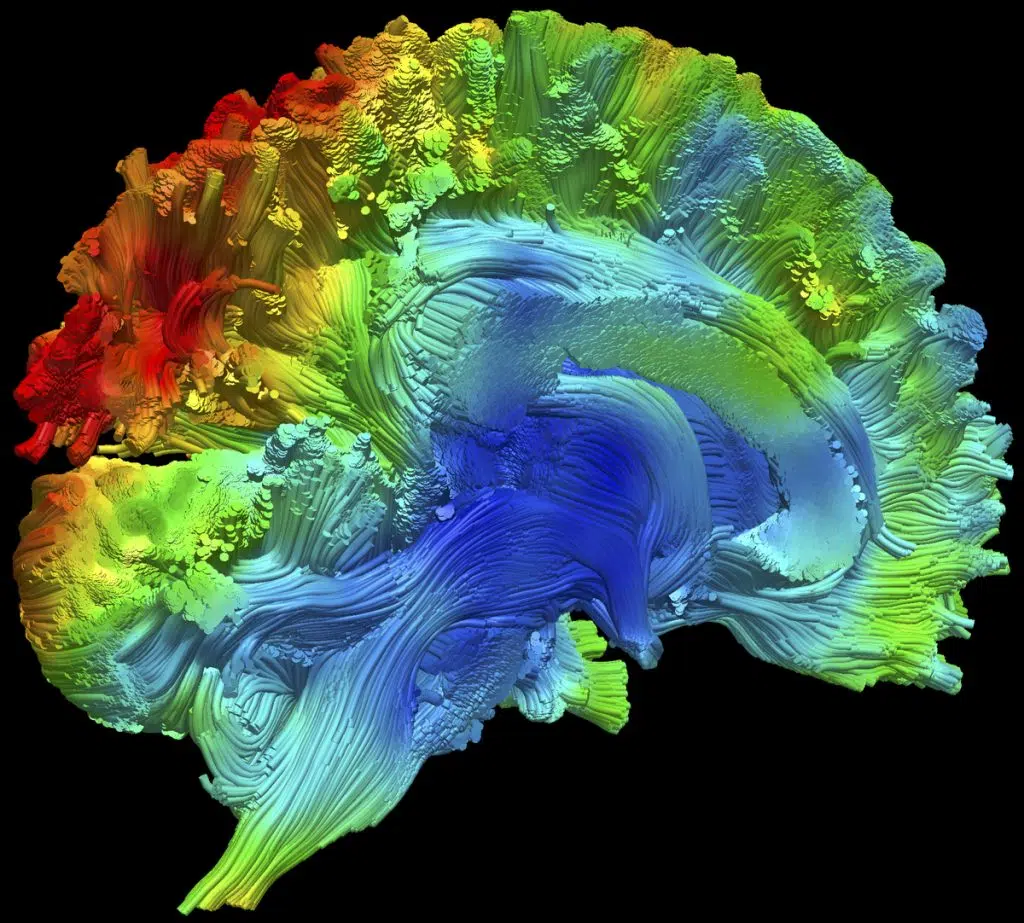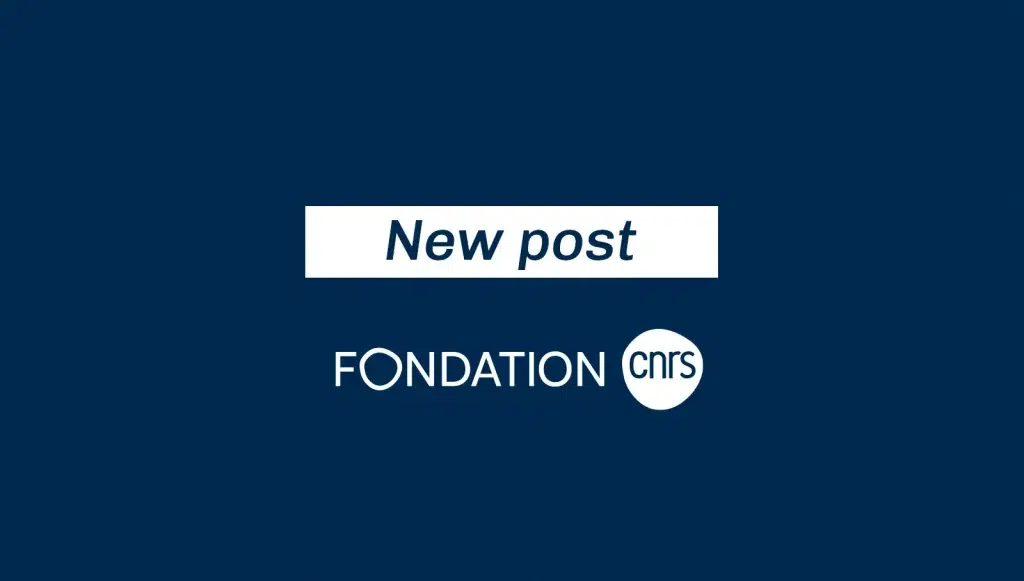An “intense and interesting” start-up year for a foundation that aims for “ambitious and free research”.
A look back at the first year of the CNRS FoundationFoundation, which has already supported several scientific projects.
Officially created to mark CNRS’s 80th anniversary in 2019, the CNRS Foundation became operational following the meeting of its first Board of Directors on January 8, 2020. “This first year enabled the administrative and accounting organization of the Foundation, which was a complex task,” explains Michel Mortierits Managing Director.
However, the Covid-19 health crisis curtailed the ambition of this first year of operation, making it difficult to exchange ideas and build relationships with individuals and companies. In spite of this, “the Foundation has achieved some fine results”, particularly with regard to private individuals who have “responded favorably via the website “.
In one year, the Foundation has benefited from the generosity of more than 100 individual donors, who have supported three research teams and “are not small amounts,” says Michel Mortier, citing a donation of 60,000 euros that was not earmarked and another of 50,000 euros with which the donor wanted to help theNeuroMyoGene Institute.
A program slowed by the crisis
Thanks to the patronage of CASDEN Banque Populairethe Foundation has also been able to support two research projects linked to the Covid-19 crisis from July 2020.
“Even though we still had few resources, the Foundation wanted to shed light on this crisis in the way CNRS knows how, both in the ‘hard’ sciences and in the human and social sciences.” Caroline Goujon of theInfectious Diseases Research Institute, Montpellier benefited from this sponsorship to identify antiviral molecules against SARS-CoV-2, responsible for the epidemic. Similarly, at the Laboratoire de psychologie sociale et cognitive, Sylvie Droit-Volet, university professor, and Pascal Huguet, CNRS research director, are working to better understand the psycho-social determinants of risk behavior and social distancing in the context of the COVID-19 pandemic: “The Foundation’s incredible responsiveness enabled us to organize surveys during the initial containment period. We were thus able to call on a specialist company to obtain a representative sample of the French population and carry out a long-term study, interviewing the same people again during the second containment. This longitudinal aspect of the study represents the originality of our work. That’s the strength of the Foundation: to give scientists the means to move fast, especially in these exceptional times”, says the researcher.
The Foundation also supports Collective Science project by Fabienne Cazalisa CNRS research fellow at the Centre d’analyses et de mathématiques sociales. The neuroscientist is seeking to better understand atypical forms of intelligence, and more specifically the cognitive capacities of autistic people, thanks to a set of innovative tools designed for research in experimental psychology. Supported by the CNRS prematurity program, this project aims to promote the professional inclusion of autistic people.
During this first year of activity, the CNRS Foundation also defined its corporate philanthropy recognition program. “This important step enables us to reach out to companies, offering them visibility and a return in terms of social responsibility”, explains the director. Sponsorship of scientific prizes, grants, chairs: the Foundation approaches companies in the same way as it does for partnership research in laboratories, but without any direct compensation, particularly in terms of ownership of results. It has just signed a skills sponsorship agreement with Altran, a world leader in engineering and R&D services and a Capgemini Group company, and the CNRS, as part of the “HUT Théâtre” project at the Institute of Electronics and Systems. An extension of the “HUT” (for “HUman at home projecT”) study initiated by the CNRS to explore and anticipate the effects of new technologies and connected objects on everyday behavior and well-being in the home, this experiment uses a collaborative, multidisciplinary platform to write an interactive play that humorously highlights the issues inherent in human-machine interactions in an ultra-connected environment.
Sheltered foundations
“For this new year, we hope to build concrete relationships with the CNRS’s major research partners”, by ensuring that the Foundation “finds its place within corporate philanthropy programs”, even if this may take time. Another project for the year is to host foundations set up by CNRS scientists.
Several foundations under aegis (see box) are currently being developed. “Sheltered by the CNRS Foundation, they benefit from its advantages, such as the ability to receive donations and legacies, while remaining operationally autonomous. In this way, they are an “adapted tool” to help scientists finance projects that cannot be carried out through the laboratories. Complementing CNRS Innovation, the CNRS’s commercialization arm, which can manage lucrative aspects (start-up creation or transfer to a company), the Foundation is “a good vehicle for supporting projects without profit”, such as the development of open-source software and data, supported by donations and patronage. “The CNRS Foundation is at the service of researchers and adapts to the needs of each community”, concludes Michel Mortier.
A foundation to preserve the ocean
The CNRS Foundation will eventually host several foundations under its umbrella. Created on January 8, 2021, the first of these is called the Rescue Ocean Foundation. Launched by the association Project Rescue Ocean, it aims to develop actions through which citizens can contribute to research projects linked to the ocean and its preservation. A “source of bridges between scientists and citizens”, according to Michel Mortier, Rescue Ocean plans, for example, to train volunteers from Finistère in waste collection methodology, in order to contribute to collection operations organized as part of the Preventing Plastic Pollution (PPP) program supervised by Ika Paul-Pont, a research fellow at the Marine Environmental Sciences Laboratory. In the same field, the foundation also supports Axel Thréhin, an ocean racing sailor and ambassador for the association, and will be equipping his boat with microplastic sensors. Finally, at the MARBEC Laboratory, “Rescue Ocean could help collect fish samples (including sharks and rays) to complete our genetic reference base, which enables us to make rapid and exhaustive diagnoses of marine biodiversity worldwide”, explains researcher David Mouillot.




